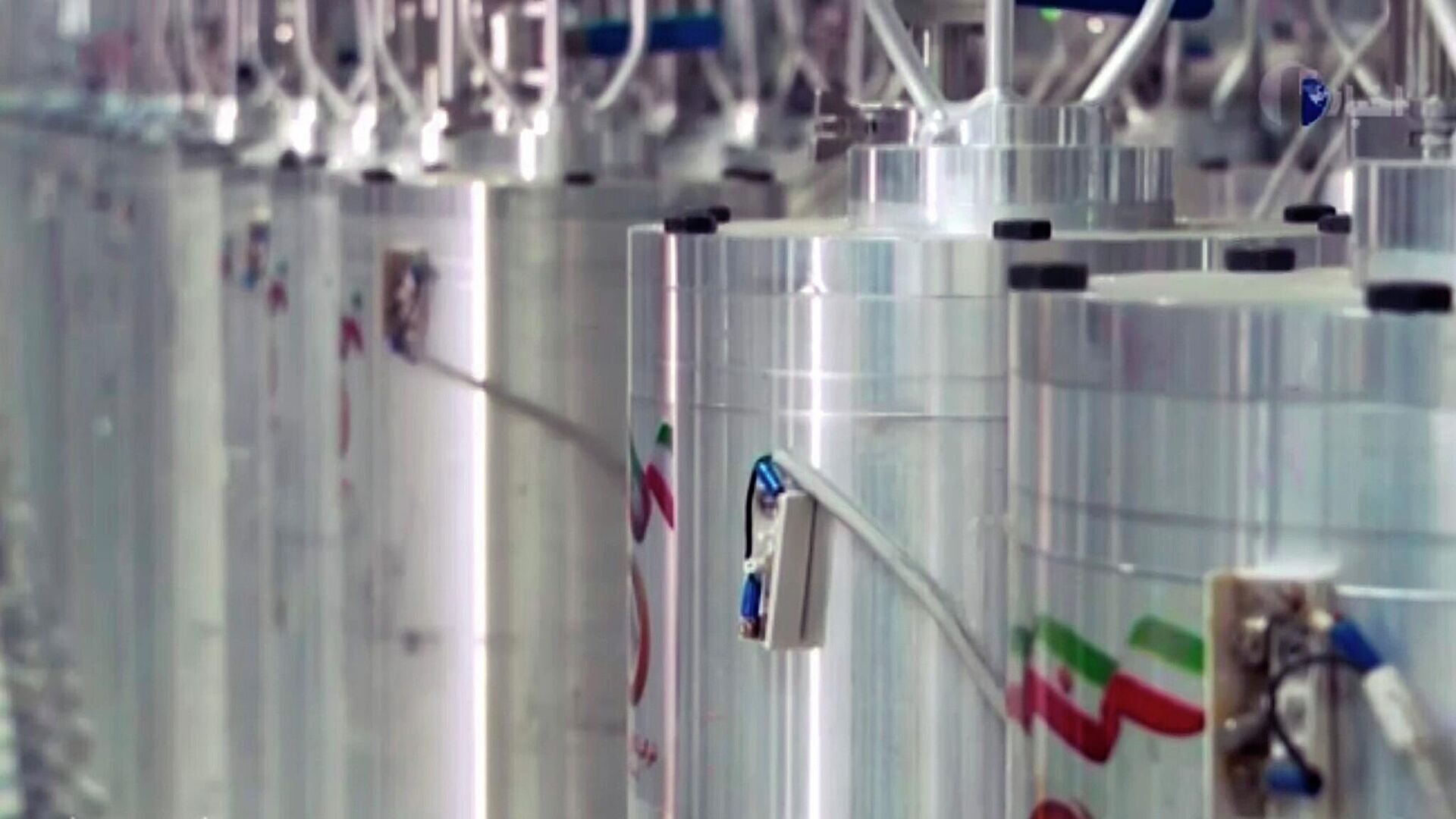https://sputnikglobe.com/20220822/iran-backed-attacks-in-mideast-jumped-400-after-us-left-jcpoa---state-department-1099875854.html
Iran-Backed Attacks in Mideast Jumped 400% After US Left JCPOA - State Department
Iran-Backed Attacks in Mideast Jumped 400% After US Left JCPOA - State Department
Sputnik International
WASHINGTON (Sputnik) - Iran-backed attacks in the Middle East increased by 400% after the Trump administration withdrew the United States from the Joint... 22.08.2022, Sputnik International
2022-08-22T20:36+0000
2022-08-22T20:36+0000
2022-08-22T20:34+0000
world
iran
joint comprehensive plan of action (jcpoa)
middle east
us
https://cdn1.img.sputnikglobe.com/img/07e6/05/1f/1095893094_0:0:2048:1152_1920x0_80_0_0_48500d0ae000a287a92835d1a4c7f1f0.jpg
"My recollection is that the pace of Iran-backed attacks after the last administration abandoned the JCPOA went up by about 400%," Price said during a press briefing.Price mentioned that Iran appears to have dropped several non-starter demands for reviving the Iran nuclear deal, such as lifting the United States' Foreign Terrorist Organization designation of the Islamic Revolutionary Guard Corps (IRGC).Price added that if the Biden administration were to return to compliance with the JCPOA, it would use every tool at its disposal to go after the IRGC and Iran-backed proxies who would do the United States harm.In 2015, Iran signed the Joint Comprehensive Plan of Action (JCPOA, also known as the Iran nuclear deal) with the P5+1 group of countries (the United States, China, France, Russia, the United Kingdom - plus Germany) and the European Union. The deal required Iran to scale back its nuclear program and severely downgrade its uranium reserves in exchange for sanctions relief, including lifting the arms embargo five years after the deal's adoption. In 2018, the US abandoned its conciliatory stance on Iran, withdrawing from the JCPOA and implementing hard-line policies against Tehran, prompting Iran to largely abandon its obligations under the accord.In April 2021, the parties to the agreement, together with the United States, began negotiations to restore the nuclear deal, working in Vienna.
iran
Sputnik International
feedback@sputniknews.com
+74956456601
MIA „Rossiya Segodnya“
2022
Sputnik International
feedback@sputniknews.com
+74956456601
MIA „Rossiya Segodnya“
News
en_EN
Sputnik International
feedback@sputniknews.com
+74956456601
MIA „Rossiya Segodnya“
Sputnik International
feedback@sputniknews.com
+74956456601
MIA „Rossiya Segodnya“
iran, joint comprehensive plan of action (jcpoa), middle east, us
iran, joint comprehensive plan of action (jcpoa), middle east, us
Iran-Backed Attacks in Mideast Jumped 400% After US Left JCPOA - State Department
WASHINGTON (Sputnik) - Iran-backed attacks in the Middle East increased by 400% after the Trump administration withdrew the United States from the Joint Comprehensive Plan of Action (JCPOA), State Department spokesperson Ned Price said on Monday.
"My recollection is that the pace of Iran-backed attacks after the last administration abandoned the JCPOA went up by about 400%," Price said during a press briefing.
Price mentioned that Iran appears to have dropped several non-starter demands for reviving the Iran nuclear deal, such as lifting the United States' Foreign Terrorist Organization designation of the Islamic Revolutionary Guard Corps (IRGC).
Price added that if the Biden administration were to return to compliance with the JCPOA, it would use every tool at its disposal to go after the IRGC and Iran-backed proxies who would do the United States harm.
In 2015, Iran signed the Joint Comprehensive Plan of Action (JCPOA, also known as the Iran nuclear deal) with the P5+1 group of countries (the United States, China, France, Russia, the United Kingdom - plus Germany) and the European Union.
The deal required Iran to scale back its nuclear program and severely downgrade its uranium reserves in exchange for sanctions relief, including lifting the arms embargo five years after the deal's adoption. In 2018, the US abandoned its conciliatory stance on Iran, withdrawing from the JCPOA and implementing hard-line policies against Tehran, prompting Iran to largely abandon its obligations under the accord.
In April 2021, the parties to the agreement, together with the United States, began negotiations to restore the nuclear deal, working in Vienna.


